Funding changes ignore housing poverty - council
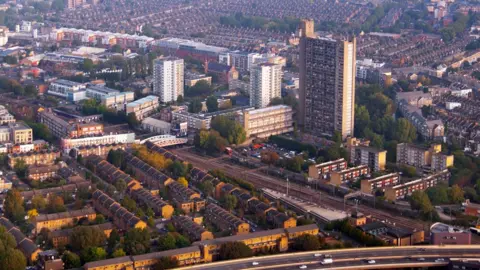 BBC
BBCThe council of a west London area known for its wealth has accused the government of not taking into account the impact of housing costs when considering funding changes.
The expensive properties in Kensington and Chelsea mask that a third of children in the borough live in poverty.
Once housing costs are factored in, London has the highest rate of households in poverty, according to London Councils, who said £700m of funding could be diverted from London as part of government plans to change the formula of how it shares funding between local authorities.
It said housing costs were not being considered but the government said it wanted "fairer funding" across all areas.
But the leader of the Royal Borough of Kensington & Chelsea (RBKC), Conservative Elizabeth Campbell, said the plans would take money from London and "give it to red wall seats in the north."
However that housing cost is not being included in the formulae that the government is using to work out the deprivation need for each local authority in its consultation.
London's borough leaders said not including housing cost when working out the deprivation need for each local authority as part of the government's the government's Fair Funding Review was skewing the figures.
As a result, RBKC believes it will lose an estimated £82.7 million in funding over three years.
"If the formula was fair we'd agree with that - what we don't agree to is selective defunding of certain London boroughs," said Ms Campbell as we walked past the Trellick Tower in Kensal Town.
"Look, here we are in North Kensington: Does this look like the sort of area full of privilege and wealth? Just because we have areas within Kensington and Chelsea with very wealthy residents it doesn't mean as a council we are a wealthy council," she added.
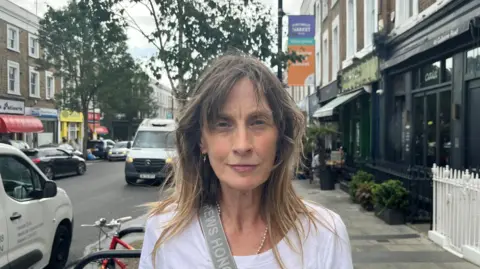
Golborne ward in the north of the borough is one of the most deprived wards in London.
There, local resident George Hencken was keen to tell me how young people like her daughter were being pushed out of the area they grew up in because of high rents.
"For my daughter who was born and bred here and for so many of her contemporaries, it's a massive issue," she said.
"None of them can afford to stay where they live. The government is not taking any account of the fact that housing costs are so extreme, beyond affordable here, and they're just going to be driving deprivation by doing this."
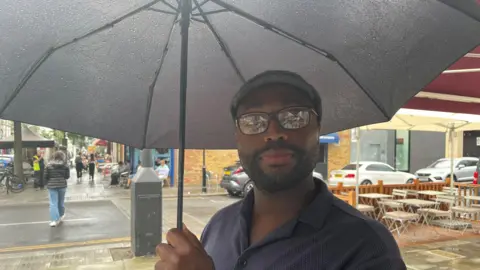
But Ishmael Palmer, who works in the area, said: "I think it should be spread equally.
"I live in London so I'm going to obviously go with the option of London being given the most money, but that's just the selfish me speaking."
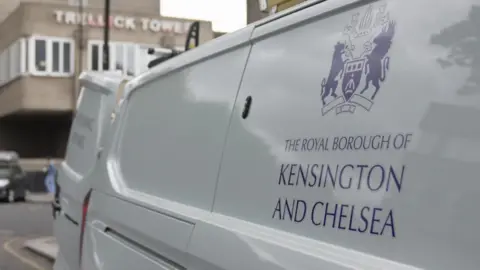
London Councils said its analysis shows that some boroughs - which were already struggling to maintain financial stability - could see a reduction of more than 60% in their grant funding from central government.
Treasury documents in the Spending Review suggested that to pay for services, council tax was expected to rise by the maximum 5% a year allowed without government permission or a referendum.
Traditionally inner London boroughs like RBKC and Wandsworth have charged lower council tax than most London boroughs - this financial year, RBKC increased council tax by 4%.
Most London boroughs have already been raising council tax by the maximum amount allowed, and Ms Campbell says, even if she does that next year, it would only raise a fraction of the money her borough would lose under these proposals.
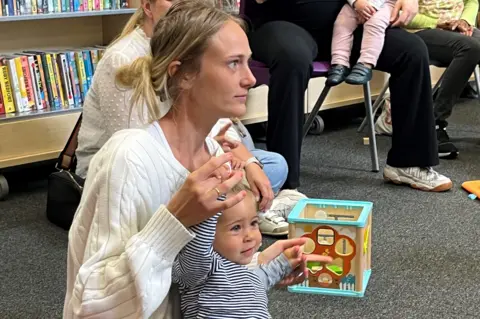
The Baby Rhyme Time class at Brompton library in the south of the borough could be the kind of non-statutory service the council might have to cut if it needs to make savings.
Sandrina Spiteri-Gonzi, there with her daughter Ava, said she did not understand why the government would divert funding away from London boroughs. She said: "We all love this class. I would be very sad to see it go."
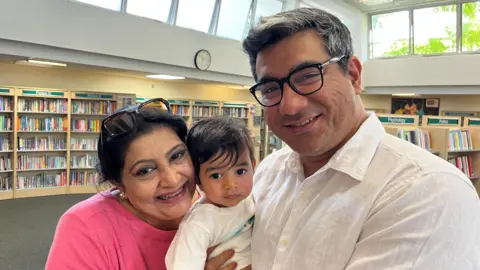
Aasim Hussain, at the class with his son Armaan, said "taking something out of one place to give it to another, I think that's just unjust, but I think keeping those opportunities equal for everybody is the right way forward".
Labour MP for Kensington & Bayswater, Joe Powell, who also sits on the Communities, Housing & Local Government committee, told me he thinks it was right for the government "to look at the levels of regional inequality" in the country, but said he wanted to "make sure that the data that the government" was using accurately reflected issues like housing costs.
'Dividing a pie that isn't big enough'
Another factor that works against inner London councils, according to Dr Jonathan Carr-West, from the Local Government Information Unit, is that the review would "downgrade" the impact on a council's costs of its "non-resident" daily population. That includes tourists and workers, which more than doubles the population in RBKC from 140,000 to 290,000 every day.
"For a lot of boroughs that have literally millions of people who don't live there coming in every day, and have associated costs, that no longer counts as much," he said.
"I think the real thing here is that this is all about dividing a pie that isn't big enough. We're not seeing more money going into local government, we're just seeing changes to how it's distributed."
A Ministry of Housing, Communities & Local Government spokesperson said it had "made available a total Core Spending Power for London, including the GLA (Greater London Autgority), of up to £13.35 billion for this financial year".
They said the government recognised the additional strain that commuters and tourists can place on service provision in some authorities – including those in London - and was taking account of need in specific service areas like temporary accommodation.
The consultation ends on 15 August.
Listen to the best of BBC Radio London on Sounds and follow BBC London on Facebook, X and Instagram. Send your story ideas to [email protected]
